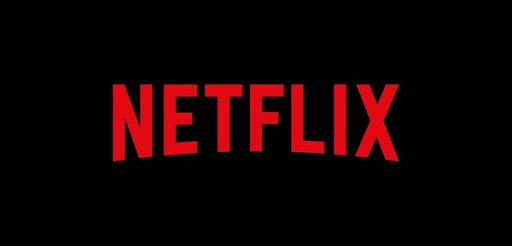Top of mind: Happy Sunday!
Here’s hoping you enjoyed the long Easter weekend. Due to some technical downtime last week, Sunday’s issue took a hiatus. I think the Lord wanted me to be present for the Easter celebrations if you ask me. I can’t argue with that.
In this week’s issue, I’m debuting our Day One series to spotlight emerging startups on the continent. And what better way to launch this than to show you how to get your paper up?
Let’s get to it.
3 big things:
- How to get equity
- Wave breaks new grounds
- Netflix is in torment
How to get equity in African startups

Day One! I am excited to introduce Day One, a new monthly segment that spotlights emerging startups building great products within the tech ecosystem in Africa.
I’m introducing GetEquity, self-styled as “a private marketplace for investors and companies to trade digital securities and assets privately”, for the first edition.
By the numbers: GetEquity services 7,500 registered users and raised $500,000 for about 25 listed startups. The company operates in Nigeria, Tanzania, Uganda, Rwanda, Kenya, and recently in the US through a recently announced partnership with Wefunder.
Inspiration: Jude told me GetEquity was inspired by the Web3 ecosystem, mainly how communities provided liquidity in cases where traditional investors overlooked certain asset classes.
In the early days of the Nigerian startup scene, startups had marginal funding. Nigerians interested in angel investing could not afford the minimum deal size ($5,000-$10,000) and could not risk big amounts to invest in startups, leading to the rise of local syndicates.
Jude says:
What I built was from my understanding of how web3 ecosystems had always worked. I have new knowledge in the idea of angel syndicates, and mirrored that into a product, which we called GetEquity.
Solving the liquidity gap: Startup investors hardly make bank on their investments without a liquidity event, which takes several years to attain and creates a barrier in attracting local investors.
For GetEquity, this presented an opportunity. Borrowing a leaf from the Web3 playbook, it tokenised the investments and made it possible for the investors to trade them.
We [Africans] are usually short term investors. The typical investing period for most Africans is two to three years on average. But the typical angel investment period is about five to seven years, and sometimes for larger states about 10 years. So how do we take out what is the norm in the West, but tailor that towards the African markets. That’s where we came up with what we called secondaries – to allow shareholders trade equity outside liquidity events. – Jude.
Dealing with regulation: GetEquity is currently in the process of obtaining a crowdfunding licence in Nigeria and in “close contact with regulators” from other countries it operates – it begs the question of how the company decides on which startups to list to ensure it protects its registered users.
Jude says the GetEquity Investment Committee (IC) leads a scouting process that screens startups that apply to get funded on the platform.
It’s the standard venture capital format. They fill in a couple of details and we have our venture team give an internal memo or advice. So, the IC files a report on their findings on whether this company is a good fit or not.
Business model and revenue: Besides its retail investing platform GetEquity, the company has B2B offerings tailored towards institutions looking to raise privately. Other features include an Employee Stock Ownership Plan (ESOP) management platform for startups and a syndicate management plan to allow syndicates to manage their members.
So how does GetEquity make money?
We have a commission, which is 5.5% of what the company raises. I mean, the global average from global competitors is about 7%. We’re still quite cheaper than other crowdfunding platforms around the world. We also do a 0.5% transaction fee on the investor side. – Jude.
Final thoughts: For now, GetEquity is focused on bringing early-stage African startups to the secondary market. The company lists an average of $20,000 worth of equity in startups with valuations between $1 million to $3 million.
With its recent successes, GetEquity is set to define how to invest in African startups – so sign up on the website and acquire some equity in your favourite African startups.It’s still Day One.
Francophone Africa Unicorn, Wave, gets first regional e-money license

The short: Francophone Africa’s first payments unicorn, Wave, has been granted the first e-money license (EME) by eight sub-regional central banks in the West African Economic and Monetary Union (Benin, Burkina Faso, Côte D’Ivoire, Guinea-Bissau, Mali, Niger, Senegal, and Togo).
Why it matters: The Stripe-backed Senegalese startup’s EME license will accelerate its market dominance in the WAEMU region. Before creating this license category, fintech startups couldn’t directly offer core-banking services such as issuing account numbers and credit, savings, and remittance products. These were exclusive privileges for banks and licensed telecom companies.
General Manager (WAEMU) Coura Carine Sene says:
Despite being one of the largest mobile money providers in Senegal and other WAEMU countries, we were limited in what we could offer our customers. We will now be able to compete with other mobile money providers on an equal footing.
What it means: The company’s CEO reports 6 million active users in Senegal alone. With access to eight new integrated markets, Wave will have the advantage of rapidly expanding its user base and proving its low-transaction fee-based payment model’s viability and technological approach (Web App/QR Codes) in connecting the continent through cashless payments. Final thoughts: Wave is on the journey to becoming Africa’s most significant fintech company. The company has successfully overcome regulatory hurdles and pressure from its traditional banking and telecom competitors to obtain a game-changing license. I am excited about what this means for other fintech players on the continent.
Netflix is crumbling, but is the company out yet?

The short: Netflix reported a loss of 200,000 subscribers in Q1 2022, setting the stage for a $50 billion wipeout in the company’s market value.
What’s more: The company’s dismal performance is spreading investor pessimism. This year’s projections worked in reverse for Netflix, following expectations of a 2.5 million subscriber gain in Q1 2022. Instead, they now expect a 2 million subscriber loss in a few months.
Netflix has been suffering a 70% drop in its equity valuation since Q4 2021 – leading to major exits and agitated equity holders. For example, billionaire investor Bill Ackman exited his $1.1 billion position in Netflix and lost over $400 million. Sheesh.
FYI: Netflix CEO Reed Hastings takes 98% of his pay in stock. Send your thoughts and prayers.
Headwinds: Netflix will struggle to raise additional money to spur content-driven growth. This would mean a significant decline in the company’s leading competitive edge over more cash-stuffed competitors like Disney+, Amazon Prime, and Apple TV.
Netflix already announced cuts in its content acquisition budget and staffing – starting with a shakedown of the animation department. Besides the streaming wars, global inflation and an anticipated recession would impact consumers’ ability to sustain the recently increased subscription costs.
Plan B: Netflix might be down, but it’s not out yet. Although CEO Hastings is a known opponent of ads in content, he’s announced the prospects of an ad-supported plan for Netflix subscribers.
Bad news for freeloaders: The company is also rolling out a crackdown on password sharing and an update to its password-sharing plan to increase the number of paid users on the platform. Freeloaders account for about 100 million users on Netflix (nearly half of its current 221 million subscribers).
Final thoughts: Netflix’s subscriber growth concerns have overshadowed the company’s increased revenue in Q1 2022. If Netflix gets its subscription models right, with more prudent spending and diversification of its core business, I am betting on it to turn its fortunes around and reward patient investors.
—
That’s it for the week. I’d love to hear your thoughts about this week’s issue. Please respond to this email or find me on Twitter @fatuogwuche 🙂
Ps – do us a solid by sharing the newsletter with your network of tech enthusiasts. Invite them to join the party 🙂
See you next Sunday!

